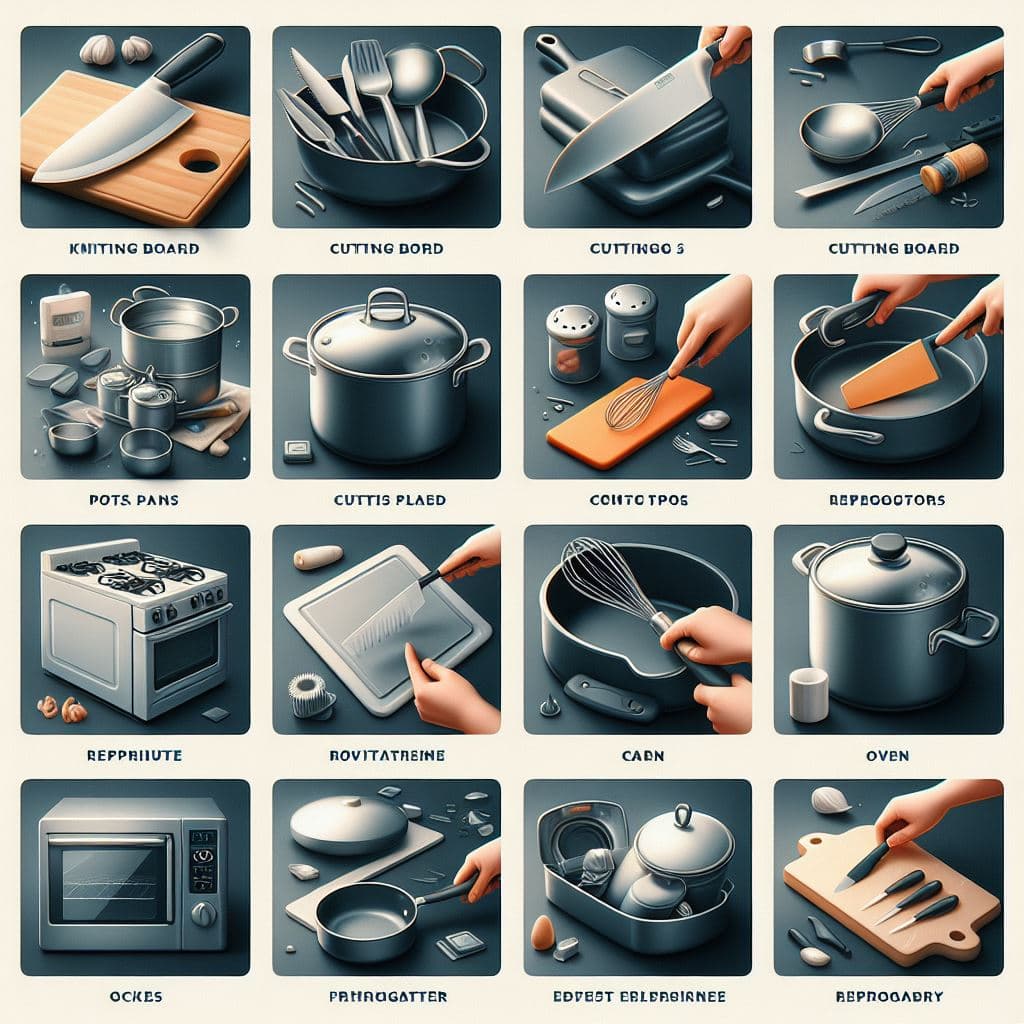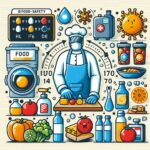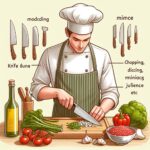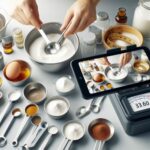Essential kitchen equipment serves specific functions and requires regular maintenance. Proper use and care ensure longevity and optimal performance.
Choosing the right kitchen equipment is a critical step in streamlining your food preparation and cooking processes. From slicing and dicing to baking and roasting, every task becomes more efficient with the help of quality gadgets and appliances. Equally important is understanding how to maintain your tools, which not only preserves their condition but also keeps you safe while cooking.
This guide highlights the indispensable tools for any kitchen and offers practical tips on how to keep them in tip-top shape, ensuring they remain your culinary allies for years to come. Whether you’re a novice cook or an experienced chef, knowing how to correctly use and care for your equipment is the secret recipe for a well-functioning kitchen.
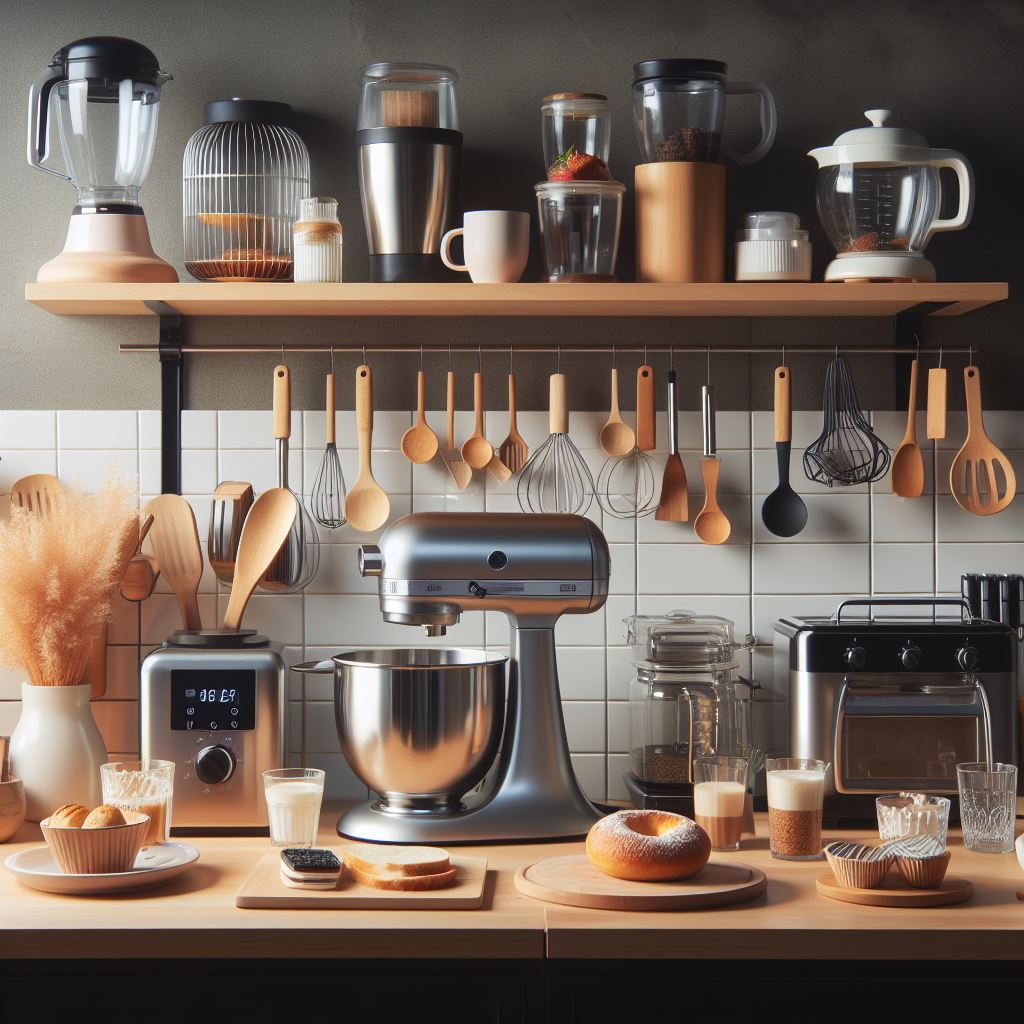
Every kitchen needs the right tools to make cooking easy and enjoyable. Kitchen essentials are the trusty items we reach for daily. These items make our culinary endeavors successful. From preparing to cooking and storing food, the right equipment is key. Like any good assistant, they deserve proper care to keep them in top shape. Our kitchens would not be the same without these tools. Let’s explore what these essentials are and how to maintain them.
Essential Kitchen Equipment
Kitchen must-haves vary from home to home. Yet, certain items are fundamental. These include knives, cutting boards, pans, pots, and utensils. These essentials form the core of your cooking arsenal. Carefully chosen, they can last for years. It is crucial to choose quality over quantity to build a functional and efficient kitchen.
| Equipment Type | Use |
|---|---|
| Knives | Chopping & Slicing |
| Cutting Boards | Prep Surface |
| Pans | Cooking & Frying |
| Pots | Boiling & Stewing |
Understanding The Role Of Each Item
Knowing your kitchen tools’ roles is a game changer. A sharp knife makes prep work a breeze. Durable pots cook food evenly. Here’s a simple guide to what some key items do:
- Knives: For precise cutting.
- Boiling Pots: Ideal for soups and pasta.
- Frying Pans: Perfect for searing and sautéing.
- Utensils: Essential for flipping and stirring.
- Measuring Tools: Ensure recipe accuracy.
Each piece of equipment has its role. Learn these roles to master your kitchen. With proper use and care, these essentials will help you create delicious dishes every time.
Core Cooking Tools And Utensils
Every kitchen needs core cooking tools and utensils to operate smoothly. Whether you’re a seasoned chef or just starting, understanding the right equipment is key. From slicing and dicing to stirring and mixing, the proper tools make cooking easier and more efficient. Ensure you know what each tool does, and how to care for them. Let’s explore the essentials for a well-equipped kitchen.
Knives And Cutting Tools: Types And Uses
Knives and cutting tools are vital for food prep. Each type has a special job:
- Chef’s Knife: Chopping and slicing most foods
- Paring Knife: Peeling and detail work on small foods
- Bread Knife: Slicing bread without crushing it
Care for knives by hand washing and using a sharpening stone to maintain their edge.
Pots, Pans, And Baking Dishes: Varieties And Purposes
Different recipes require different cookware:
- Saucepan: Heating liquids and making sauces
- Frying Pan: Sautéing and pan-frying
- Baking Dish: Oven-baked recipes
Non-stick cookware should be cleaned with soft sponges. Cast iron needs seasoning to preserve its surface.
Measuring Cups And Spoons: Precision In Cooking
To follow recipes accurately, you need measuring cups and spoons. They help you measure:
- Dry ingredients like flour and sugar
- Liquids like water and oil
- Small amounts of spices or baking powder
Wash them after each use and store them together for easy access.
Spatulas, Ladles, And Tongs: Aiding In Food Preparation
Spatulas, ladles, and tongs keep your hands safe and make cooking a breeze.
- Spatula: Flipping and turning food
- Ladle: Serving soups and stews
- Tongs: Gripping and moving food
Opt for heat-resistant materials and always wash them thoroughly after use.
Mixing Bowls And Prep Tools: The Foundation Of Food Prep
Mixing bowls and prep tools are the starting point of most recipes.
| Tool | Use |
|---|---|
| Mixing Bowls | Combining ingredients |
| Whisk | Blending batter and sauces |
| Peeler | Stripping skins off vegetables and fruits |
Keep these tools in top shape by cleaning them after each use and storing them in a dry place.
Specialized Kitchen Appliances
Unlock the full potential of your culinary space with the right tools. Specialized kitchen appliances can transform meal prep from a chore into a joy. They offer convenience, efficiency, and precision to your cooking routine.
Blenders And Food Processors: When To Use Each
Understanding your needs is key to choosing between blenders and food processors.
- Blenders: Perfect for liquids and smoothies, they offer quick, easy clean-up
- Food Processors: Master of tasks like chopping and dough making.
Care tip: Clean immediately after use to keep blades sharp and motors powerful.
Slow Cookers And Pressure Cookers: Convenience In Cooking
These cookers are time-savers and nutrient-preservers.
| Appliance | Use |
|---|---|
| Slow Cookers | Perfect for stews and tender meats |
| Pressure Cookers | Great for fast, high-heat cooking |
Care tip: Seal and valves checks ensure longevity
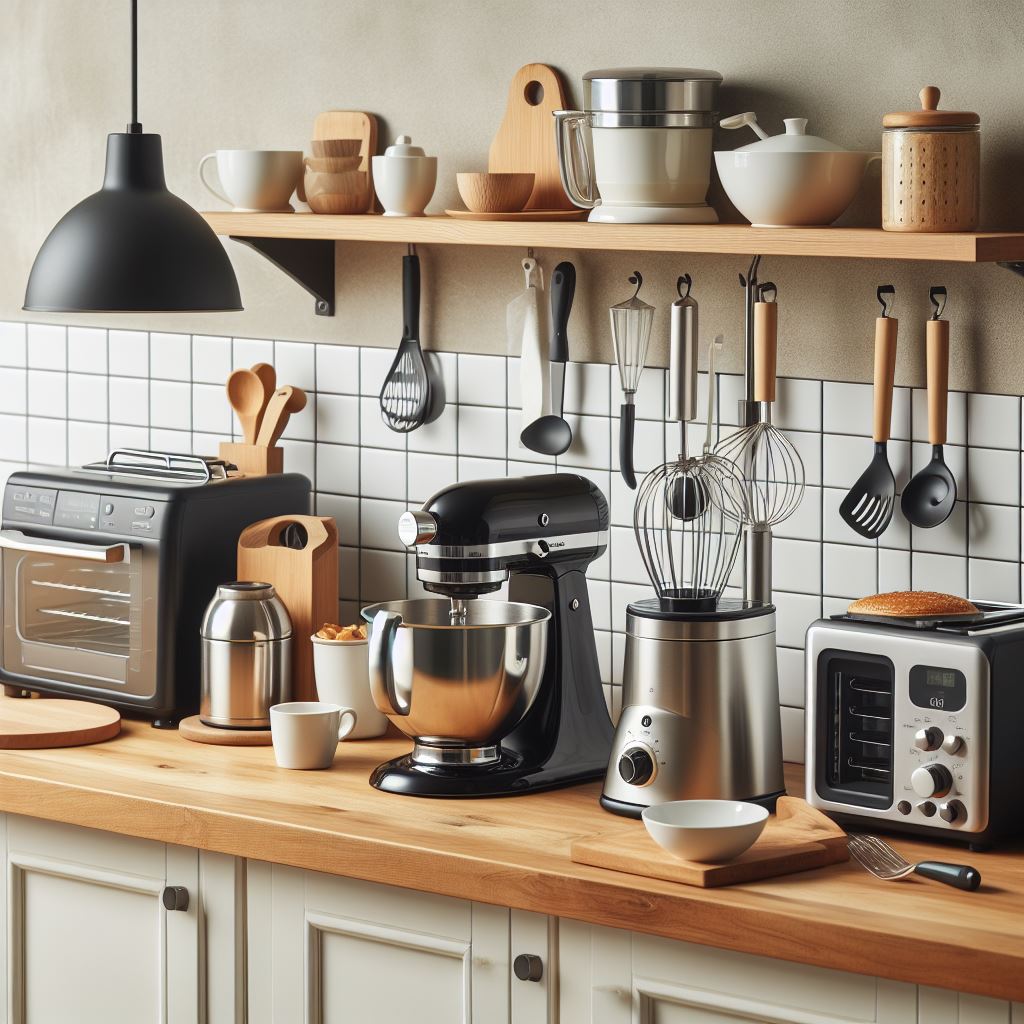
Toasters And Ovens: Understanding The Differences
Toasters and ovens are for different tasks.
- Toasters: Best for quick bread browning
- Ovens: Ideal for baking and roasting
Care tip: Regular crumb removal for toasters, and residue cleaning for ovens
Microwaves And Rice Cookers: Everyday Essentials
Microwaves and rice cookers simplify daily cooking. Microwaves For heating and defrosting within minutes Rice Cookers For consistently flawless rice every time
Care tip: Wipe microwaves after use, and use non-abrasive cleaners for rice cookers.
Maintenance And Care Of Kitchen Equipment
Maintaining your kitchen equipment is crucial for its longevity. Proper care ensures that tools perform their best. It also saves money over time. Let’s dive into how to keep your gear in top condition.
Cleaning Protocols For Longevity
Regular cleaning prevents buildup and extends equipment life. Follow these steps:
- Dishwasher-safe items: Use a hot cycle. Air-dry for best results.
- Hand-wash items: Use warm, soapy water. Dry thoroughly.
- Wooden utensils: Wipe with a damp cloth. Avoid soaking in water.
- Cast iron pans: Clean while warm. Use coarse salt for scrubbing. Oil after each use.
Sharpening Knives And Managing Wear
Sharp knives are safer and more efficient. Sharpen regularly. Use a honing rod weekly. For full sharpening, use a whetstone or seek a professional every 6 months.
Storage Solutions To Preserve Equipment
Store tools properly to prevent damage.
| Equipment | Storage Method |
|---|---|
| Knives | In a block or on a magnetic strip |
| Pots and Pans | Hang or stack with liners between |
| Small Appliances | Tucked away from moisture and heat |
| Utensils | In a drawer organizer to prevent jumbling |
When To Replace: Identifying End Of Life For Kitchen Tools
Not all kitchen equipment lasts forever. Know when to replace:
- Non-stick pans: When they start to peel or scratch.
- Plastic tools: If they discolor, melt, or have a bad smell.
- Wooden items: If they crack or start to rot.
- Knives: If sharpening no longer restores their edge.
Safety And Efficiency In The Kitchen
Kitchens can be busy and dangerous places if not managed correctly. To help prevent accidents and boost efficiency, one must understand the importance of organizing equipment properly and knowing how to care for it. Safety measures do not only protect you but also preserve the life of your kitchen tools. Let’s discuss some best practices for a safer and more efficient kitchen experience.
Best Practices For Preventing Accidents
Prevention is key in any kitchen. A clutter-free environment ensures free movement and reduces the risk of accidents. Equip your kitchen with:
- Non-slip mats: Place them in areas prone to spills to prevent falls.
- Proper lighting: Ensure every corner is well-lit to avoid mishaps.
- First-aid kit: Have it within reach for immediate response to cuts or burns.
Always use oven mitts and pot holders to handle hot cookware. Keep sharp knives stored securely and do not leave them soaking in water where they can’t be seen. Regular maintenance of equipment is crucial; check for frayed cords or damaged parts regularly.
Organizing Your Space For Efficient Cooking
Organization streamlines your cooking process and saves time. Follow these tips:
- Keep it clear: Curate your countertops to host only frequently used items.
- Label everything: Use labels for ingredients and expiry dates.
- Zonal organization: Group items by their use to minimize movement.
Consider using wall-mounted racks for tools and magnetic strips for knives to save space. Efficient storage solutions like drawer dividers can also keep utensils neatly separated.
Understanding Food Safety With Kitchen Equipment
Using kitchen equipment safely goes hand-in-hand with food hygiene. Employ these habits:
- Clean as you go: Wipe down surfaces to avoid cross-contamination.
- Temperature control: Use a thermometer to check food is cooked safely.
- Regular appliance checks: Ensure safety features on appliances are intact.
Disinfect cutting boards regularly, and have different boards for meat and vegetables. Tighten loose handles and knobs to prevent hot food spills. Replace sponges and cleaning clothes often to mitigate the spread of bacteria.
Building Your Essential Kitchen
Gathering the right tools for your kitchen is an exciting step.
Consider it a journey that combines practicality with personal taste.
Focus on the utility and joy your kitchen equipment brings.
This section will shed light on how to balance budget with quality,
tailor your selection to your unique cooking style, and embrace the
ongoing adventure of culinary discovery.
Quality kitchen tools are vital for creating delightful meals.
Yet, managing funds wisely is equally important.
Invest in high-quality basics like a sturdy chef’s knife,
non-stick cookware, and durable mixing bowls. These last longer and can save you money over time.
Watch for sales and consider multipurpose tools to stretch your budget.
Your cooking reflects your unique taste and preferences.
Choose tools that cater to your style of cooking.
If baking is your passion, quality baking sheets and a reliable mixer are must-haves.
Love quick, healthy meals? A top-notch blender and a collection of chopping boards might be just what you need.
Think about what you cook most and prioritize those pieces.
Cooking is a lifelong journey.
There’s always a new technique or recipe to try.
As you grow, your kitchen grows with you.
Stay curious and be open to adding or replacing items in your collection.
Read reviews, experiment with different brands, and don’t be afraid to change your setup as your skills advance.
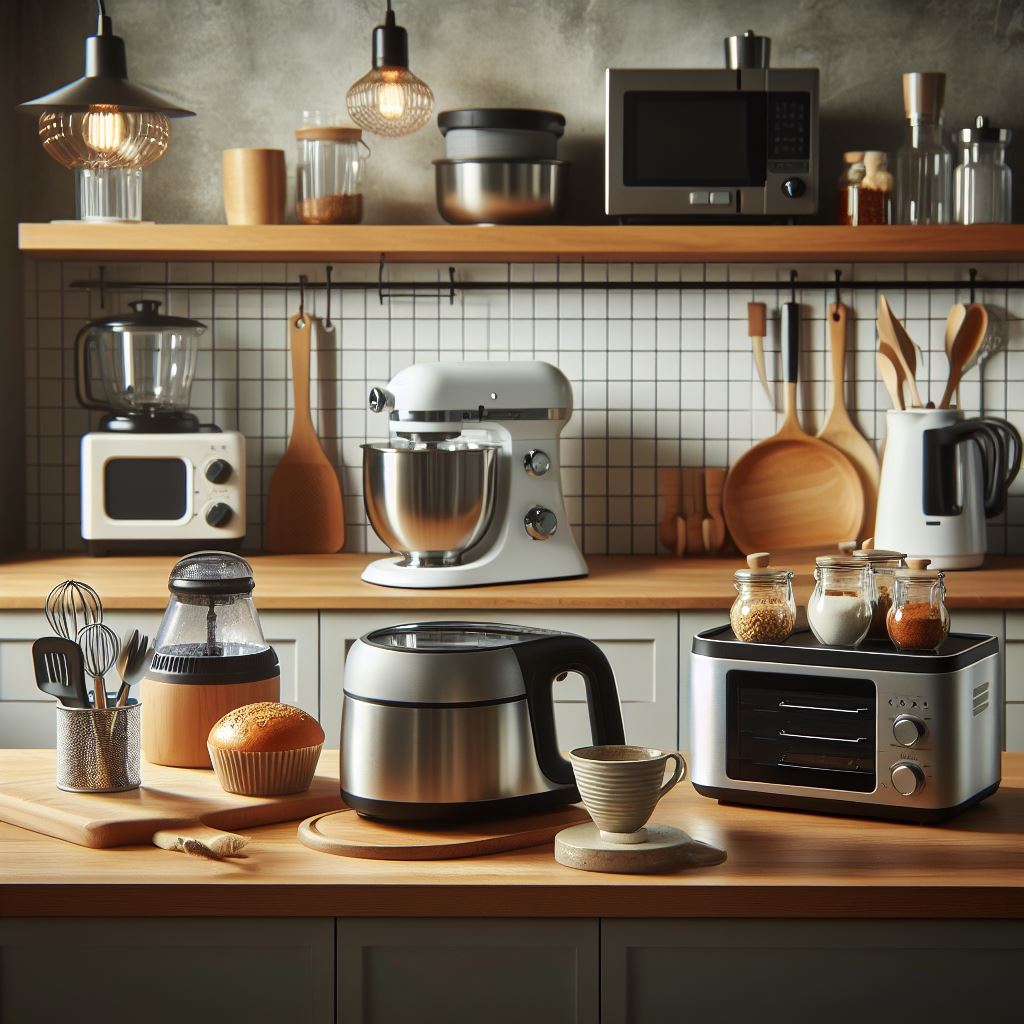
Ending Words
Outfitting your kitchen with the right equipment is a step towards culinary triumphs. Taking proper care ensures longevity and performance of your tools. Embrace these essentials and master their maintenance to elevate your cooking experience. Remember, the best dishes come from a kitchen well-equipped and loved.
Keep cooking, keep caring!
Frequently Asked Questions On Essential Kitchen Equipment: Uses And Care
How Do You Maintain And Care For Kitchen Essentials?
Regularly clean kitchen essentials with appropriate cleaning agents. Store tools and gadgets in dry, organized spaces. Sharpen knives periodically for optimal performance. Follow manufacturer instructions for maintenance. Handle glassware and delicate items with care to prevent damage.
What Are Kitchen Equipment And Their Uses?
Kitchen equipment encompasses a range of tools used for cooking, baking, and food preparation. Knives and cutting boards facilitate chopping; pots and pans enable cooking; mixers and blenders aid in combining ingredients; measuring cups and spoons ensure precise portions.
What Are Kitchen Essentials Used For?
Kitchen essentials are tools and equipment used for cooking, preparing, serving, and storing food in a home or professional setting. They ensure efficient meal preparation and enhance kitchen functionality.
Why Is It Important To Use And Care For Kitchen Tools And Equipment?
Proper care for kitchen tools ensures longevity and maintains hygiene. It enhances safety during use and helps achieve better cooking results. Regular maintenance preserves tool effectiveness and efficiency, saving money on replacements.

